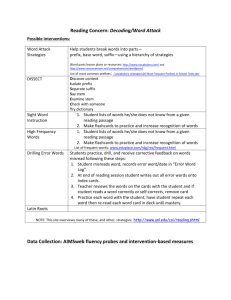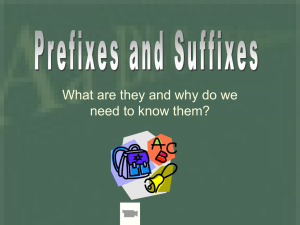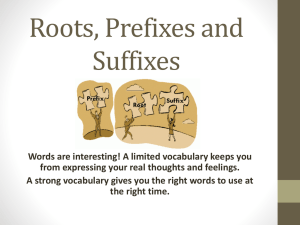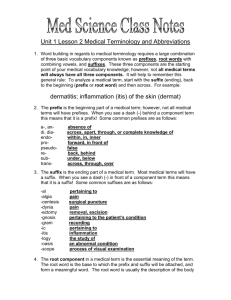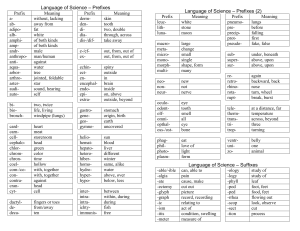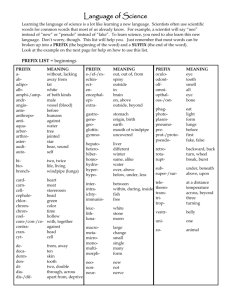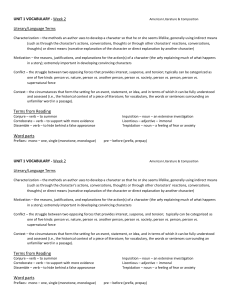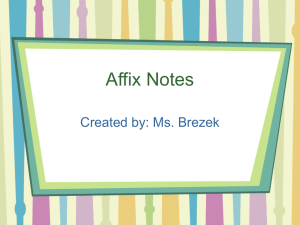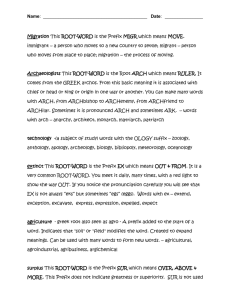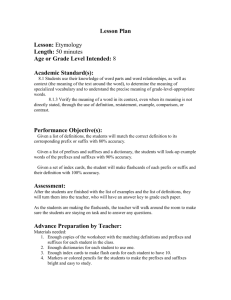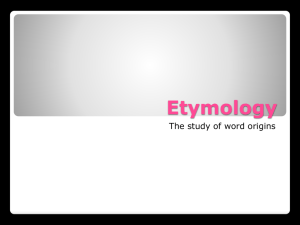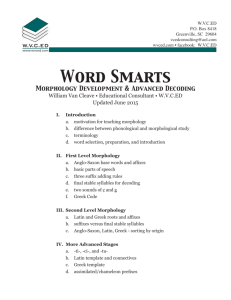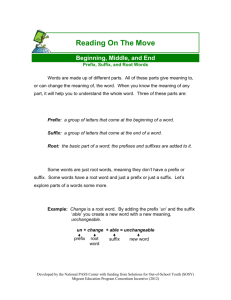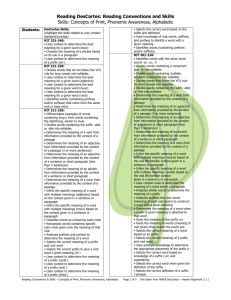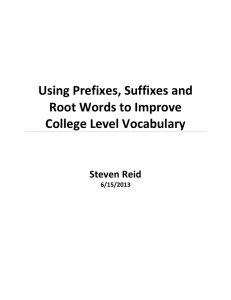WORD STRUCTURE
advertisement
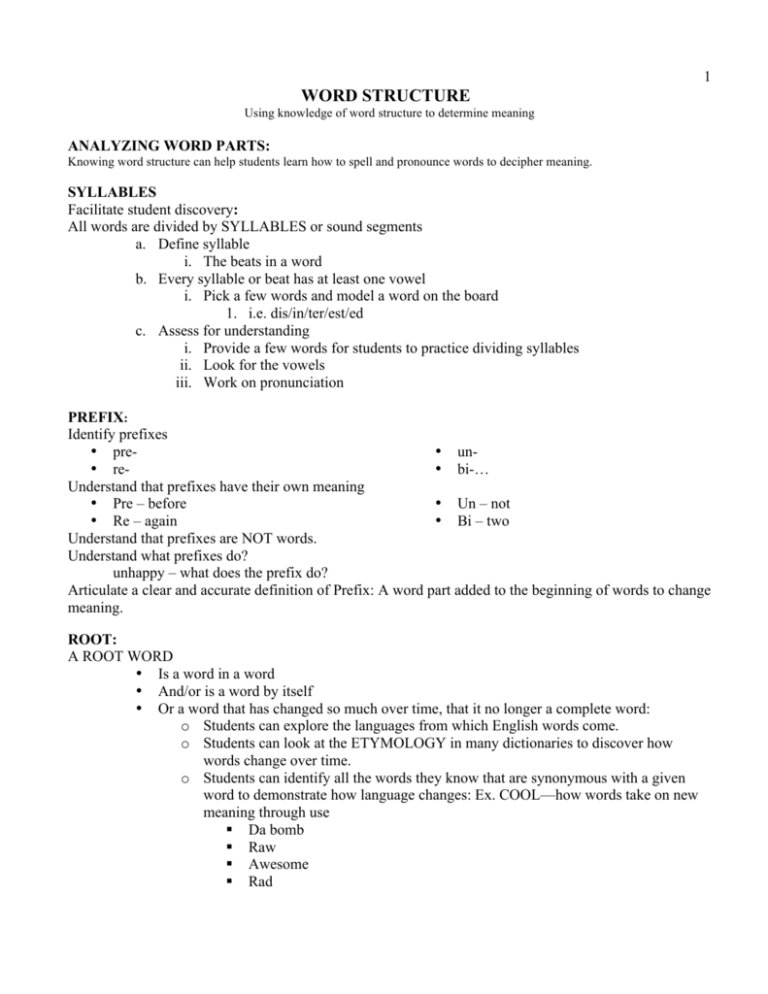
1 WORD STRUCTURE Using knowledge of word structure to determine meaning ANALYZING WORD PARTS: Knowing word structure can help students learn how to spell and pronounce words to decipher meaning. SYLLABLES Facilitate student discovery: All words are divided by SYLLABLES or sound segments a. Define syllable i. The beats in a word b. Every syllable or beat has at least one vowel i. Pick a few words and model a word on the board 1. i.e. dis/in/ter/est/ed c. Assess for understanding i. Provide a few words for students to practice dividing syllables ii. Look for the vowels iii. Work on pronunciation PREFIX: Identify prefixes • pre• un• re• bi-… Understand that prefixes have their own meaning • Pre – before • Un – not • Re – again • Bi – two Understand that prefixes are NOT words. Understand what prefixes do? unhappy – what does the prefix do? Articulate a clear and accurate definition of Prefix: A word part added to the beginning of words to change meaning. ROOT: A ROOT WORD • Is a word in a word • And/or is a word by itself • Or a word that has changed so much over time, that it no longer a complete word: o Students can explore the languages from which English words come. o Students can look at the ETYMOLOGY in many dictionaries to discover how words change over time. o Students can identify all the words they know that are synonymous with a given word to demonstrate how language changes: Ex. COOL—how words take on new meaning through use Da bomb Raw Awesome Rad 2 ROOTS have relatives: • What makes people related? (Share the same bloodline, birth/adoption, marriage) • Does looking alike make us related? (No) • Can people be related and not look alike or be alike? (Yes) • List words that are related to STRUCTURE o Construct o Construction o Instruct o Deconstruction What do they have in common? They share the same root - (STRUCT--build)—therefore they are related words—same family—share a history. SUFFIX: Identify suffixes: (-ly, -ous, -ed…) These are difficult to define! Understand that suffixes change the job a word can do. Jobs: Naming noun Action verb Describing adjective or adverb Students can name things in the room – NOUN Students can describe the things named – ADJECTIVE Students can name actions – VERB Student can describe actions – ADVERBS Understand that words aren’t the job, but can do the job. Example: A student can be a son, grandson, friend, waiter, etc… he can do those things, but it’s not who he is; the same is true with words. Example: The race was long. I love to race. Identify the job (Name) Identify the job (Action) CREATE CONTEXT TO TEST JOB—naming, describing or action: NOUN Test: The word can be used as a sentence subject. • (The/ a / an _______________ is or are…) VERB Test: The word can be used as a sentence predicate; what the subject is or is doing. • (A girl (is/are) _____________________. ) • (The boy(s) is/are _________________. ) 3 DESCRIBING Test: Use the word in a sentence to determine if the word is doing a describing job. Words that describe can have an arrow drawn from them to the word being described. (Note: If it is too difficult to use an unfamiliar word in a sentence, the end suffix can be transferred to a known word and the describing test applied). REVIEW: Word structure • Prefix • Root • Suffix jobs: a word part added to the beginnings of words to change meaning a word in a word or a word base that has changed over time a word part added to the ends of words to help words do different (name, describe, action) Word history • Etymology: English words come from places and languages throughout the world and have been added to our language throughout time. Words change over time: disrespecting = dissing Words are related by their roots and related roots share meaning: • Memory • Memoir • Memo • Memorial APPLY KNOWLEDGE & ASSESSMENT: Begin with easy words and progressively work toward more difficult words. • Break words into their parts • Define each part (the job for suffix) 4 • List an overall definition • List 3 related words Give students a list of simple words that have all 3 parts for practice. e.g.. discovering, replayed, & unnatural MODEL WORD: Unhappily Prefix: un- = NOT Root: happy = TO FEEL JOY Suffix: -ly = DESCRIBE Def.: to describe not feeling joy Related words: Happy, happiness, happily (share the same root – HAPPY) ASSESS: students understanding through application. Identify and respond to errors in understanding.
